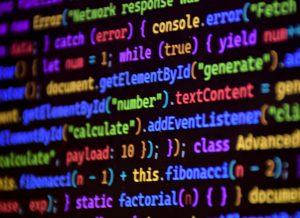Electronic Music Instruments With AI Composition Features
Electronic music instruments with AI composition features are changing the game for producers and musicians. These innovative technologies combine the power of artificial intelligence with the limitless creativity of music production, resulting in a truly unique and revolutionary experience. With the rise of AI in various industries, it’s no surprise that the realm of electronic music is also being transformed. In this article, we will explore the world of electronic music instruments with AI composition features and how they are redefining the way we create and consume music.
The Evolution of AI in Music
Artificial intelligence has come a long way since its inception and has found its way into various aspects of our daily lives. From self-driving cars to personal assistants, AI has brought about significant changes and advancements in our world. The music industry is no exception. In recent years, AI has been making headlines with its advancements in music composition and production.
AI has been able to analyze vast amounts of data and learn patterns, making it capable of creating original compositions that mimic human creativity. This has opened up endless possibilities for musicians and producers, pushing the boundaries of what was previously thought possible in electronic music production.
Electronic Music Instruments with AI Composition Features
1. AI-Powered MIDI Controllers
MIDI controllers are essential tools for music producers and musicians, and their integration with AI has made them even more valuable. These controllers use AI algorithms to analyze and interpret user inputs, allowing for more efficient and intuitive control over music production software. This has greatly improved the workflow for producers, making it easier to create and edit compositions.
Some MIDI controllers also have AI composition features that can generate melodies and chord progressions based on user inputs. This allows for quick and easy creation of original music ideas, eliminating the need for repetitive tasks such as coming up with chord progressions or melodies.
2. AI-Driven Synthesizers
Synthesizers are a staple in electronic music production, and the integration of AI has elevated their capabilities even further. These AI-driven synthesizers can analyze and learn user inputs, creating unique and dynamic sounds that can be used in compositions. This not only saves time but also expands the range of sonic possibilities for producers.
Additionally, some AI-driven synthesizers have the ability to compose music on their own, using complex algorithms and AI learning to create original pieces. While they may not replace human creativity entirely, they can inspire and assist musicians in their creative process.
3. AI-Based Drum Machines
Drum machines have been a staple in electronic music production for decades, but AI has taken them to the next level. These machines use AI algorithms to analyze and generate drum patterns, allowing producers to quickly come up with new and unique beats. This not only saves time but also adds a layer of unpredictability and excitement to the production process.
Some AI-based drum machines also have features that can generate entire drum tracks for a song, complete with variations and fills. This gives producers a starting point for creating a drum track and allows for more experimentation and creativity.
4. AI-Assisted Mixing and Mastering Plugins
Mixing and mastering are crucial steps in the music production process, and AI has streamlined and improved these processes. AI-assisted mixing and mastering plugins use algorithms to analyze and enhance audio tracks, resulting in a more polished and professional sound. These plugins can detect and correct issues such as EQ imbalances, noise reduction, and dynamic range control, taking some of the burden off of producers.
Some AI plugins also have the ability to analyze and compare songs to create a reference point for mastering, resulting in a more consistent and balanced final product. This not only saves time but also ensures a high-quality production.
The Future of Electronic Music and AI
The integration of AI in electronic music instruments is just the beginning. As technology continues to advance, we can expect to see even more innovative and revolutionary developments in the industry. Some experts predict that AI will eventually be able to create music that is truly indistinguishable from human composition, raising questions about the role of human creativity in music production.
However, for now, AI is a tool that can assist and inspire producers, making the production process more efficient and creative. Electronic music instruments with AI composition features are changing the landscape of music production and opening up a world of possibilities for musicians and producers alike.
Conclusion
The integration of AI in electronic music instruments is not only reshaping the way we create and consume music but also pushing the boundaries of what was previously thought possible. With AI-driven MIDI controllers, synthesizers, drum machines, and mixing/mastering plugins, producers now have powerful tools at their disposal to streamline their workflow and enhance their creativity. As we look towards the future, it will be interesting to see how AI continues to transform the world of electronic music and what new developments will arise.










